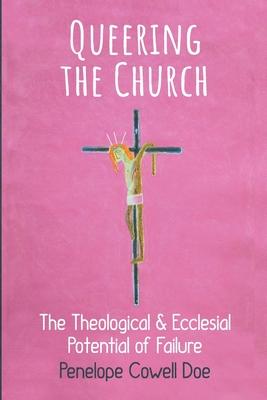Church dialogues, including official reports and debates within the General Synod, operate under the premise that canonical authority can shape a viable theology and coherent ecclesiastical and liturgical practices. In a groundbreaking departure from conventional methodologies, Queering the Church offers a rigorous examination of the hermeneutical frameworks that inform discussions on homosexuality within ecclesiastical governance. Drawing inspiration from Halberstam's concept of the 'queer art of failure, ' Doe advocates for a fundamental shift-a move away from entrenched institutionalized debates toward a more inclusive, deconstructive discourse. Rather than perpetuating cycles of authoritative rhetoric, Doe proposes a transformative realignment-one that challenges traditional power dynamics and fosters a more equitable theological dialogue. Provocative and timely, this book promises to illuminate new avenues toward a nuanced comprehension of church discourse.

Church dialogues, including official reports and debates within the General Synod, operate under the premise that canonical authority can shape a viable theology and coherent ecclesiastical and liturgical practices. In a groundbreaking departure from conventional methodologies, Queering the Church offers a rigorous examination of the hermeneutical frameworks that inform discussions on homosexuality within ecclesiastical governance. Drawing inspiration from Halberstam's concept of the 'queer art of failure, ' Doe advocates for a fundamental shift-a move away from entrenched institutionalized debates toward a more inclusive, deconstructive discourse. Rather than perpetuating cycles of authoritative rhetoric, Doe proposes a transformative realignment-one that challenges traditional power dynamics and fosters a more equitable theological dialogue. Provocative and timely, this book promises to illuminate new avenues toward a nuanced comprehension of church discourse.